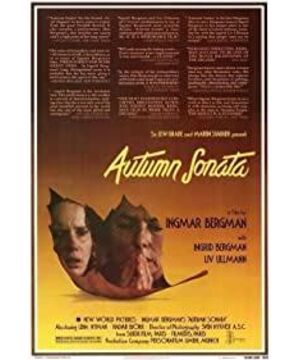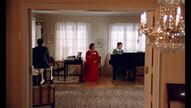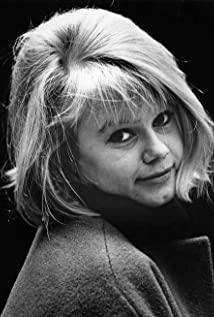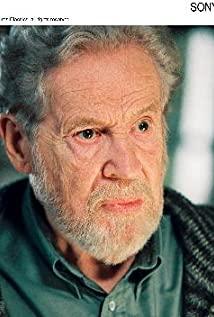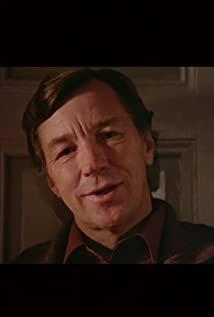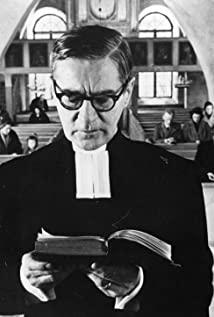Bergman's "Autumn Sonata," whose title clearly hints at the musical structure of the film—the Sonata, the most successful and influential structural design in the history of music. Countless music popularization books go on and on trying to teach beginners to remember Exposition, Development, Recapitulation. The most wonderful account of this structural design I have ever seen comes from the piano master Chen Hongkuan:
"Why is the sonata so interesting? From grade 1 to grade V and back to grade 1. It occurred to me that this is actually a very clever reaction in our lives. At grade 1 our life is a kind of step-by-step life, and then Slowly leaving her changed to V level, this kind of change can only be felt by you in that place, and you will come back after you feel it. But the life after you come back is completely different from the previous life.” (From Chen's lecture at the Department of Musicology, Shanghai Conservatory of Music)
Chen revealed the most basic impulse in the structure of the sonata, and the reason why the structure of the sonata is so successful is because this impulse is also buried in the myths, legends, histories and great works of art of many peoples: birth-departure home - to go home. Naturally, it also includes Bergman's "Autumn Sonata". Bergman once said something very similar to Chen's: "When we were young, we escaped from our parents, and then step by step, we returned to them. At this moment, we grew up."
Some critics have already noticed some "autobiographical" clues in "Autumn Sonata". When a person devotes himself to art or to what he considers a noble cause, it brings terrible trauma, alienation and coercion to the family, to the children. The son of a zealous pastor and a successful artist in his own right, director Bergman has experienced both firsthand. Actress Bergman (Berman) also abandoned his family in order to travel the world with Italian director Roberto Rossellini. Therefore, the presentation of "Autumn Sonata": a faithful pastor husband, narrating unconditional love and obedience to his wife, is intriguing. The theme begins with "love" and "obedience" and embarks on an absolutely terrifying journey.
The real entrance to the development department is, I believe, that "Chopin Prelude" scene. The daughter (the pastor's wife) played Chopin's "Prelude No. 2 in A minor" to her mother, an outstanding pianist, like going back to childhood, practicing under her mother's supervision. Although her daughter was a keen writer, she played Chopin with the worst clichés of romanticism: Chopin music as a refuge of tenderness. The mother cried, touched by the warmth of her daughter (not Chopin), triggering her memories of the good side of the past (as to what lies beneath the good, the viewer will soon know). Afterwards, my mother sat in front of the piano and replayed the Second Prelude with the air of a real artist. The same music, the daughter playing like a greenhouse flower, and under the mother's hand, the eerie bass interval sneaking numbly hollow, the three-note melody appearing like a ghost, staggering and falling in the dots, it's a terrifying abyss! True art opens up contradictions, highlights them, and intensifies them. In great artistic expression, there is no room for meek moderation, everything is pushed to the extreme.
Bergman sometimes likes to give the film a warm, orange-tinged tone that, in The Magic Flute and Finney and Alexander, is as steady and brilliant as a major chord. While the warm orange tones of "Autumn Sonata" are a metaphor for the seasons, the core is wrapped in icy cold colors. Like the development of Beethoven's sonatas, the themes of "love and meekness" in the presentation are thrown into the furnace, twisted and smashed into shape.
That night, the mother was awakened by a nightmare, which later proved to be just the beginning of a real nightmare: a half-drunk daughter, unabashedly expressing her true views on her mother and family life, her brilliant artistic career, the daughter of a successful person, The influence of the artistic family, these are all false appearances. Real life is a hell and the culprit is the mother. The damage is gradually accumulated by countless trivial matters, just like the cruelest Ling Chi, the warm family is actually a sadistic execution ground. At the climax of the development department, the daughter complained, "Can a mother and a daughter imagine a more terrifying combination than this?" The mother could only murmur, "Do you love me or hate me?" We Finally getting to the most heart-pounding core of this sonata, there is practically no line between extreme love and hate. "Do you love me?" is the same as "Do you hate me?"
The recapitulation, returning to the pastor's husband, narrates unconditional love and obedience to his wife (the pastor's theme in the developmental ministry of the mother-daughter feud is secretly hidden, and Bergman once again vents his dissatisfaction with the church). But everything was different, and the mother left. The mother and daughter could not reach a reconciliation. According to the director's self-report, the original script ended with the mother and daughter understanding each other. The daughter's idea of giving her mother a new life was given up because it was too difficult. The characters seemed to have a tendency to find their own way. In the early years, I always tried to take control of the characters, but then I became wiser and let them express themselves.” ("Bergman on Film" Guangxi Normal University Press, p. 230).
Bergman is not very satisfied with her film. Today's glory of "Autumn Sonata" seems to go more to the actress Bergman. This film becomes her first Swedish-language film and her swan song. But in my opinion, one of the most genius designs by director Bergman in this film is the paralyzed little daughter who suffers from aphasia. When the elder sister was in conflict with her mother, she rolled out of bed, climbed to the top of the stairs, and screamed "Mom!" At that moment, the mother had completely collapsed, and she pleaded with her daughter: "Save me!" The paralyzed daughter of the mother's communication was instantly transformed into a symbol of this mother-daughter relationship. The film finally freezes on these two missing semi-circles, making a gesture of mutual desire, like two dissonant chords that are eager to be resolved, rushing sharply to the final tonic. However, Bergman stopped the movement of the sonata at this juncture. The result is that the whole film is like a huge and urgent question mark, trying to squeeze each viewer's answer.
View more about Autumn Sonata reviews


